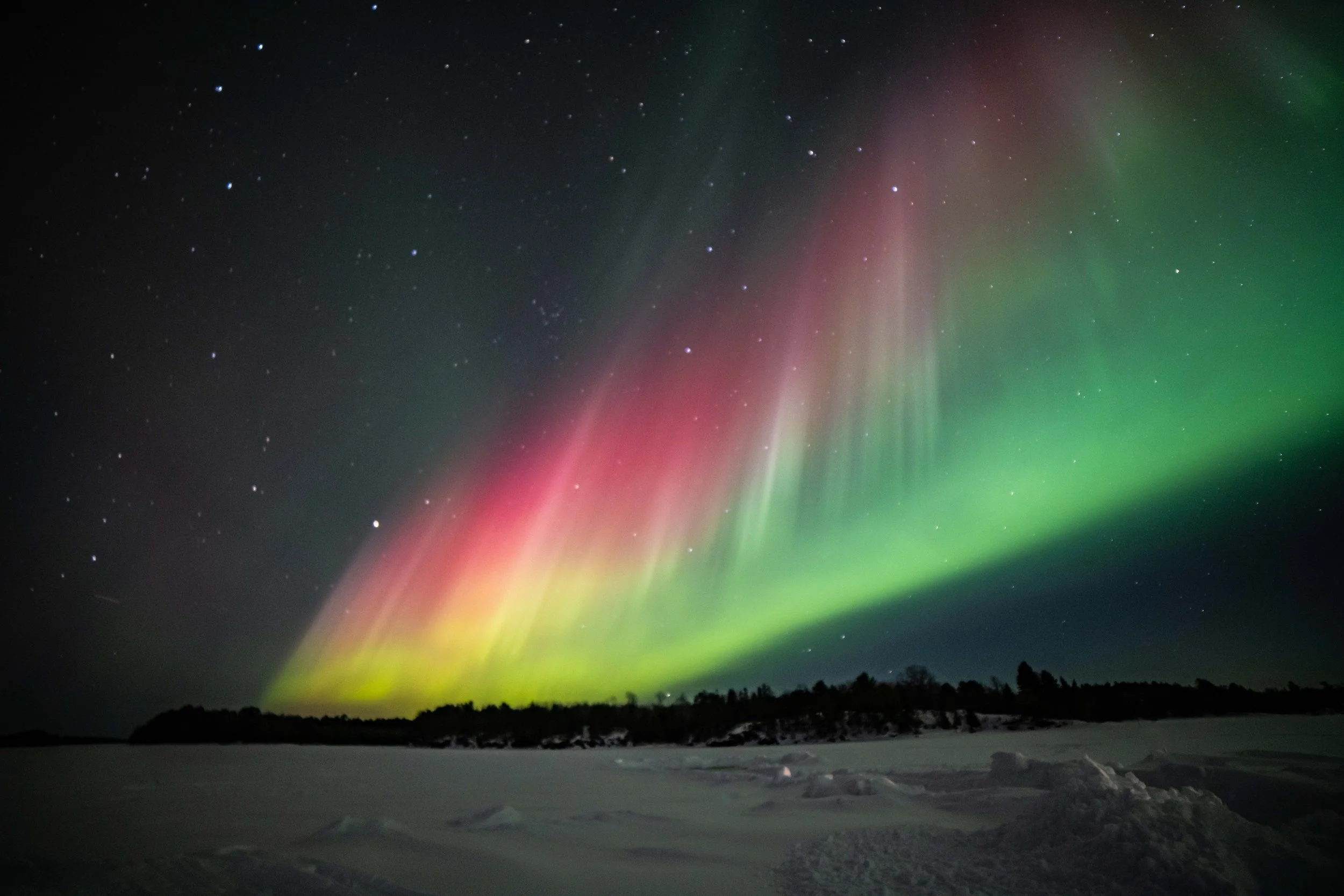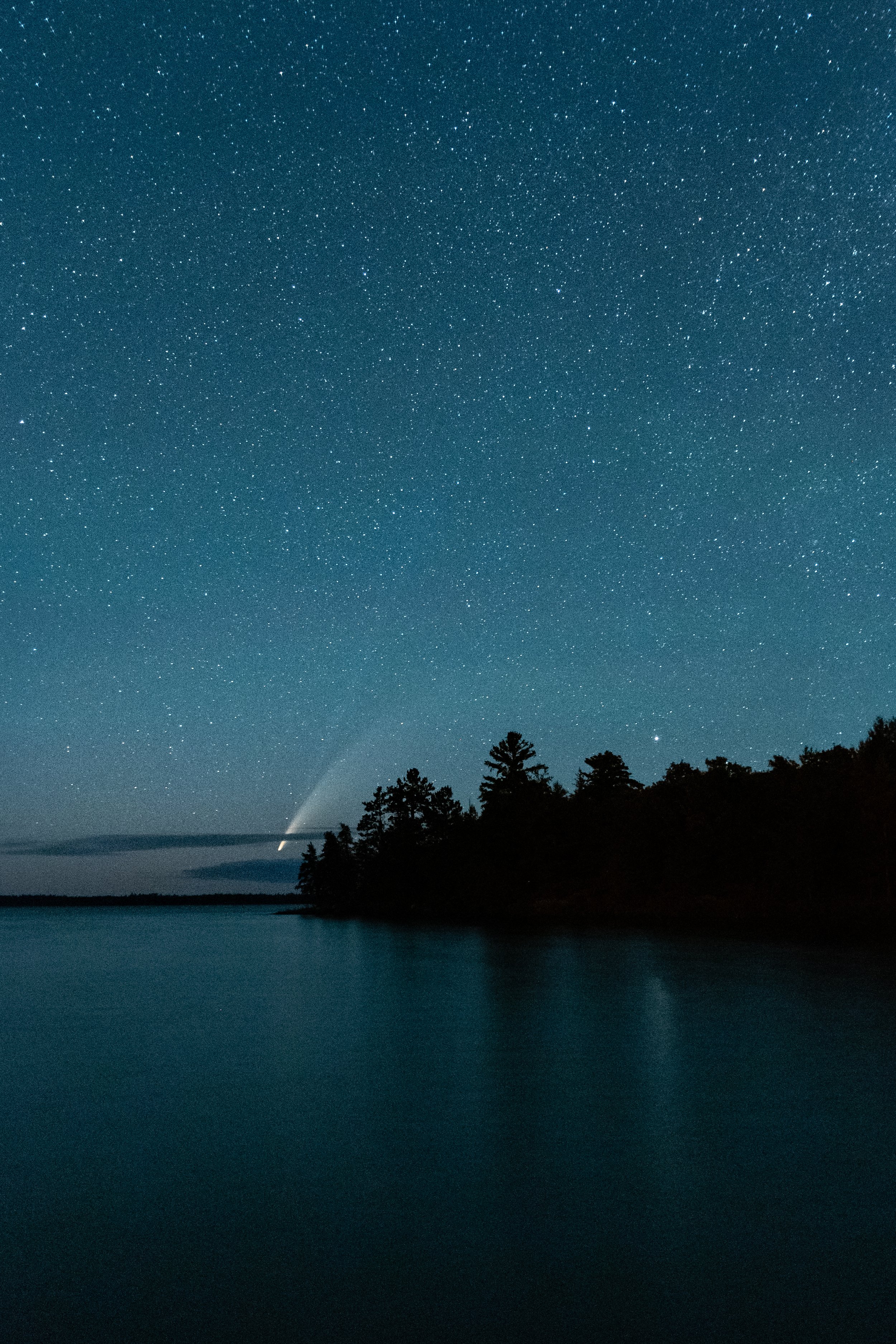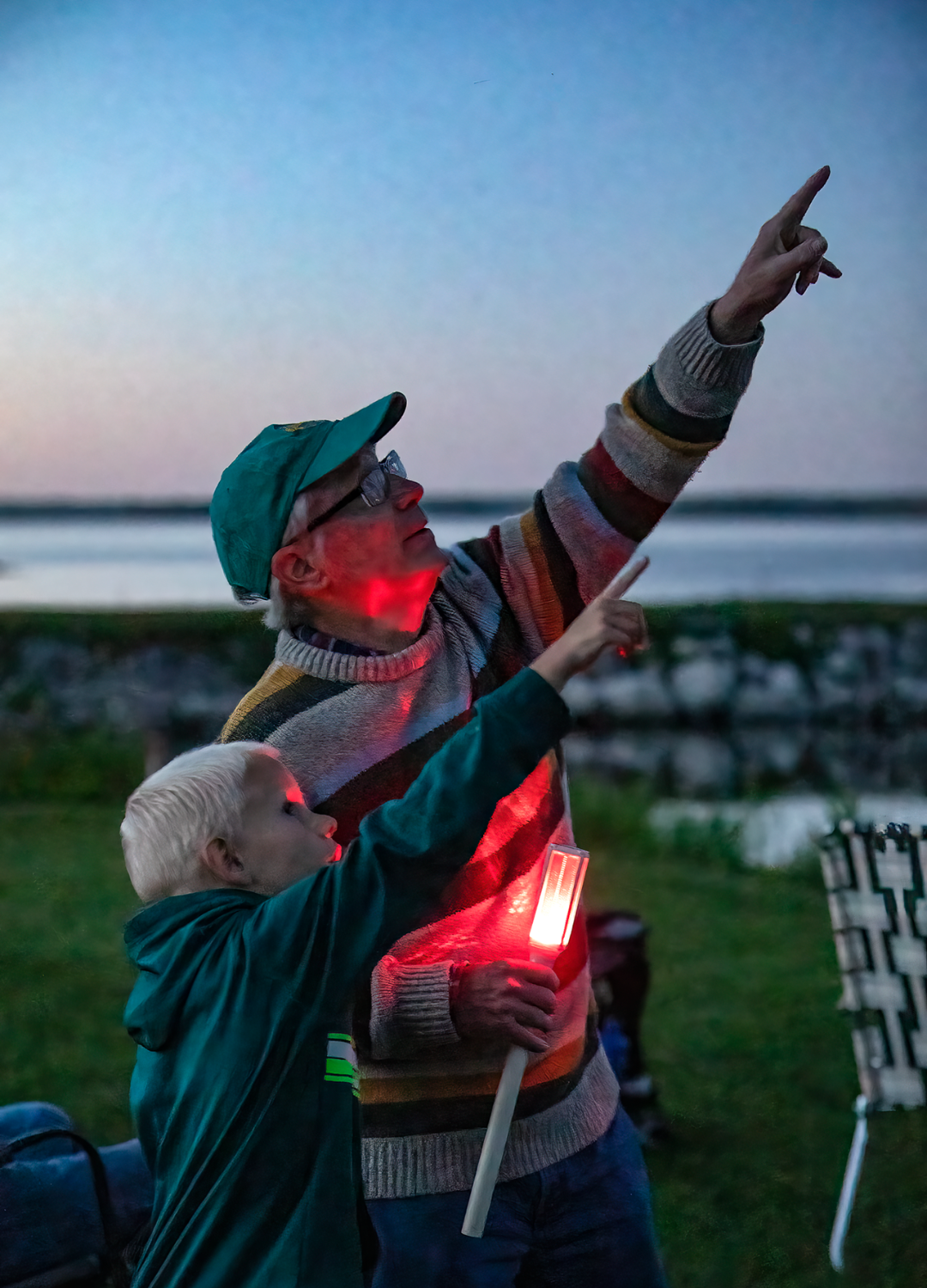Stargazing Spectacles: A Guide to Winter's Night Sky Events
Written by Jesse Gates, Voyageurs Conservancy Education Specialist
As summer comes to a close, longer nights provide spectacular opportunities to view dazzling stars, planets, meteors, and more! While winter months may bring freezing temperatures, there are advantages to experiencing dark skies this time of year. Even better, pesky bugs, including mosquitoes, are gone!
Whether you are already a night sky enthusiast or new to stargazing, our team at Voyageurs Conservancy hopes to strengthen your connection to the region’s magnificent dark skies. Step outside and look up to experience awe-inspiring astronomical events this winter:
Colin Willemsen
Experience the Geminids meteor shower from December 7 - 17, 2023
This meteor shower has approximately 120 meteors per hour, making it one of the most thrilling meteor showers of the year. The Geminids Meteor shower will take place December 7-17, with the peak occurring on December 13 and 14 (which also happens to be during the New Moon - the darkest time of the month! Perfect timing!)
Gordy Lindgren
Catch the Northern Lights
While the appearance of Northern Lights aren't influenced by the winter itself, longer nights provide a wider window for seeing this colorful phenomenon. The earlier sunsets also allow you to begin viewing earlier in the night. To increase your chances of seeing this spectacular light show, you will want to find a location with very dark skies like Voyageurs National Park. There are two types of forecasts you want to consider to increase your chances of seeing the Northern Lights:
Weather Forecast: Sometimes the Northern Lights may be dancing in the night sky, but if there are clouds obscuring your view - you would never know it! Avoid weeks that are scheduled to have heavy cloud coverage throughout the night.
Northern Lights forecast: This is like a weather forecast but for the Northern Lights. There are many apps that will provide you with this information such as My Aurora Forecast & Alerts, Aurora Alerts, and Amazing Aurora. These apps can even alert when the Northern Lights are up in the sky!
Gordy Lindgren
Boreal Stargazing Week
Join us for our Boreal Stargazing Week February 12 - 18 to enjoy guided astronomical events throughout Minnesota and Voyageurs National Park. Join Voyageurs Conservancy, the National Park Service, and community partners for night sky activities for all ages including guided snowshoe hikes under the stars, educational lessons, telescope observations, and constellation stories. Learn more at voyageurs.org/stargazing. So layer up, grab a hot drink, blanket, and enjoy all Voyageurs’ dark skies have to offer this winter!
Maintaining Dark Sky Park Certification
Sustaining Voyageurs National Park’s International Dark Sky Park designation is a rigorous effort involving year-round efforts from the National Park Service, Voyageurs Conservancy, and community partners. A place can lose its certification if light pollution in the area grows past a certain threshold, impact the park’s darkness readings. Learn how we work together to keep this prestigious certification from the International Dark Sky Association:
Colin Willemsen
Light Fixture Changes: Existing lighting in the park is retrofitted to reduce light pollution and preserve habitats for the wildlife that call Voyageurs home. To date, over 87% of the park’s light fixtures are dark sky friendly - with the goal to reach 100% in the coming years.
Community Engagement: Our Dark Sky Initiative brings Voyageurs’ boundless night sky to anyone’s fingertips. Voyageurs Conservancy education specialists host constellation tours and telescope sessions in the summer and special winter stargazing events. Our annual Star Party inspires local businesses and community members to preserve and celebrate their region’s dark skies. Our goal is to educate visitors and local partners about the importance of preserving darkness.
D. Colburn / The Timberjay
Data Collection: National Park Service staff travel to five locations throughout the park to record the luminance of the night sky using a Sky Quality Meter. The darkest possible sky measures 22.0 on the SQM and Voyageurs’ skies average 21.45 - signaling incredibly dark skies!
Inspiring the Next Generation: Our Dark Sky Programs reach beyond the park’s borders. The Conservancy brings the wonder of Voyageurs’ night skies to students across the country through its virtual Dark Sky Classroom.
Dark Sky Partnerships: We are proud to collaborate with other protected areas and dark sky advocacy groups including Starry Skies North IDA, Friends of the Boundary Waters, Superior National Forest, and more. Together, we promote education and citizen science opportunities for the public.





